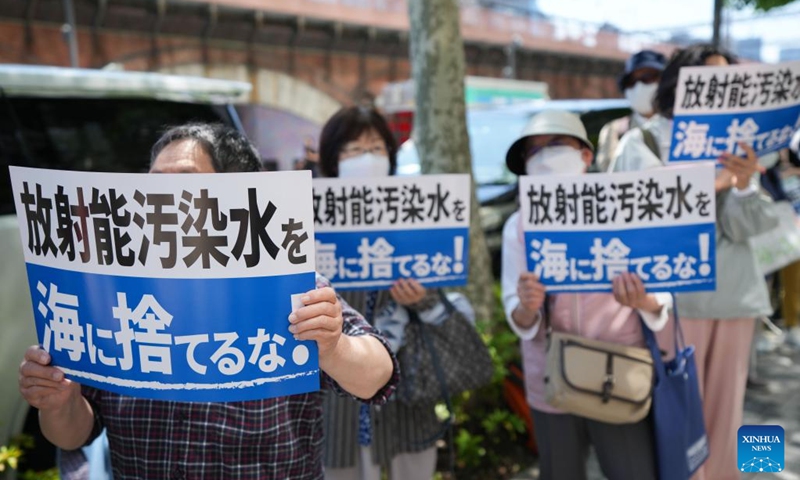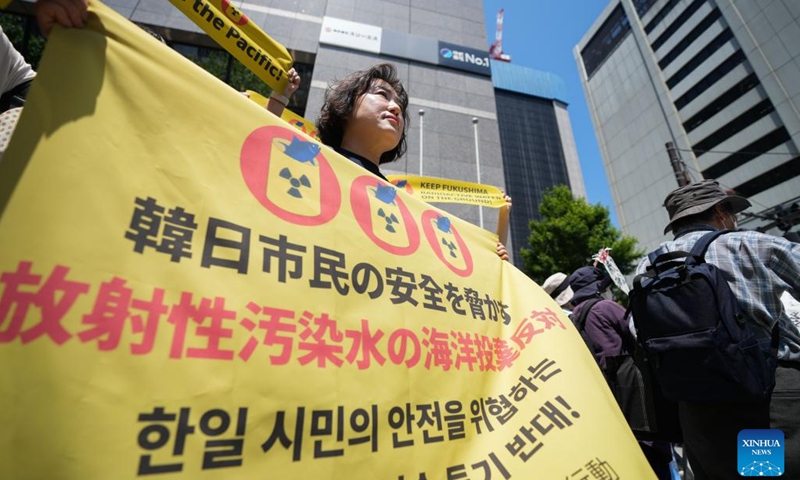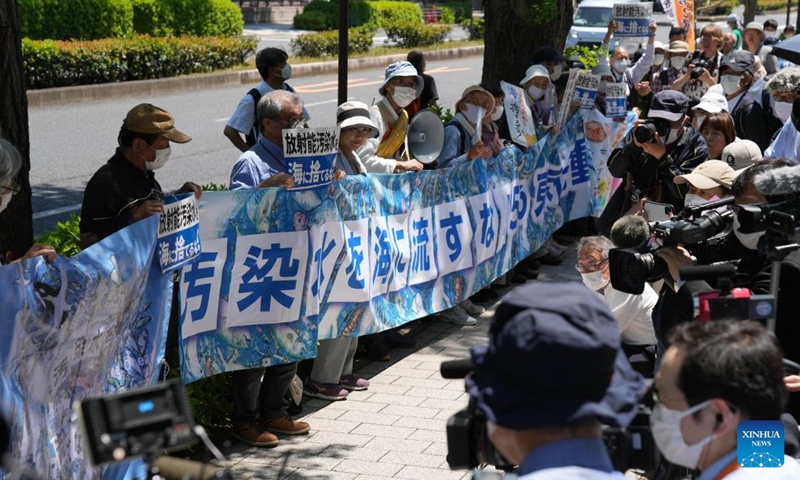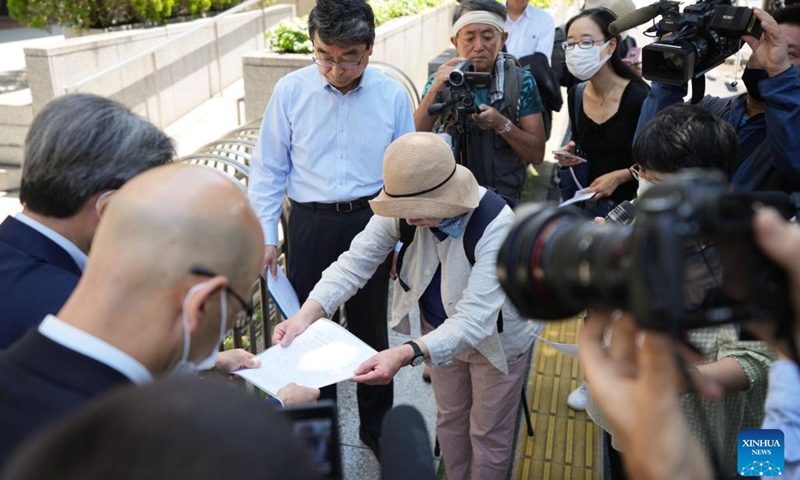
People rally in front of the headquarters of Tokyo Electric Power Company (TEPCO) to protest against the Japanese government's plan to discharge nuclear-contaminated water into the sea in Tokyo, Japan, May 16, 2023. Hundreds of Japanese people on Tuesday gathered at multiple locations in Tokyo to protest against the government's plan to discharge nuclear-contaminated water from the crippled Fukushima Daiichi Nuclear Power Plant into the sea, demanding immediate suspension of such plan. (Photo: Xinhua)

South Koreans rally in front of the headquarters of Tokyo Electric Power Company (TEPCO) to protest against the Japanese government's plan to discharge nuclear-contaminated water into the sea in Tokyo, Japan, May 16, 2023. Hundreds of Japanese people on Tuesday gathered at multiple locations in Tokyo to protest against the government's plan to discharge nuclear-contaminated water from the crippled Fukushima Daiichi Nuclear Power Plant into the sea, demanding immediate suspension of such plan(Photo: Xinhua)

People rally in front of the Second Members' Office Building of the House of Representatives to protest against the Japanese government's plan to discharge nuclear-contaminated water into the sea in Tokyo, Japan, May 16, 2023. Hundreds of Japanese people on Tuesday gathered at multiple locations in Tokyo to protest against the government's plan to discharge nuclear-contaminated water from the crippled Fukushima Daiichi Nuclear Power Plant into the sea, demanding immediate suspension of such plan.(Photo: Xinhua)

Chiyo Oda (C), co-director of KOREUMI, a Japanese citizens' conference to condemn further pollution of the ocean, submits a petition to a representative of Tokyo Electric Power Company (TEPCO) in front of TEPCO headquarters in Tokyo, Japan, May 16, 2023. Hundreds of Japanese people on Tuesday gathered at multiple locations in Tokyo to protest against the government's plan to discharge nuclear-contaminated water from the crippled Fukushima Daiichi Nuclear Power Plant into the sea, demanding immediate suspension of such plan(Photo: Xinhua)
Hundreds of Japanese people on Tuesday gathered at multiple locations in Tokyo to protest against the government's plan to discharge nuclear-contaminated water from the crippled Fukushima Daiichi Nuclear Power Plant into the sea, demanding immediate suspension of such plan.
On Tuesday morning, residents from prefectural regions, including Tokyo, Fukushima and Nagasaki, gathered in front of the headquarters of Tokyo Electric Power Company (TEPCO), shouting slogans such as "Don't pollute the ocean," "Protect fisheries" and "Guard the future" in unison.
Seen on-site were various banners and flags with slogans that read "Don't discharge polluted water into the sea," "Don't pollute the ocean for all," and "The sea is not the toilet for nuclear power plants."
The Japanese government, which regarded discharging nuclear-polluted water into the sea as the initial conclusion, has been making all kinds of excuses stressing that other discharge methods would not work or could not preserve nuclear-polluted water on land, said Kazuyoshi Sato, co-director of KOREUMI, a Japanese citizens' conference to condemn further pollution of the ocean and one of the rallies' organizers.
Sato, also a resident of Fukushima prefecture, said in his speech that the Japanese government is now spending tens of billions of yen to publicize the discharge plan through various media platforms, but the public, not convinced of such wrong propaganda, will not agree to the decision.
"Through today's actions, we are raising our voice against the dumping plan to the whole world," he said.
Chiyo Oda, another co-director of the group, read and submitted a petition to a TEPCO representative, demanding the company to abide by the agreement with local associations such as Fukushima Prefectural Federation of Fisheries Co-operative Associations and not to discharge nuclear-polluted water into the ocean without the understanding and consent of relevant parties.
The petition required disclosure of information such as the concentration and total amount of all radionuclides and reassessment of the radiation's impact on the marine environment and creatures.
It also demanded fundamental countermeasures from TEPCO, such as exploring the construction of large water storage tanks for long-term nuclear-polluted water preservation and promoting the practical application of tritium separation technology.
The rally held in front of the Second Members' Office Building of the House of Representatives later during the day was joined by five Japanese lawmakers from opposition parties, including the Constitutional Democratic Party and the Social Democratic Party.
Mizuho Fukushima, head of the Social Democratic Party, told the crowd that radioactive materials, once discharged, cannot be retrieved, so they must be intensively managed.
"Such materials would be beyond management if they are discharged into the ocean. We can't allow such a thing to happen," she said.
